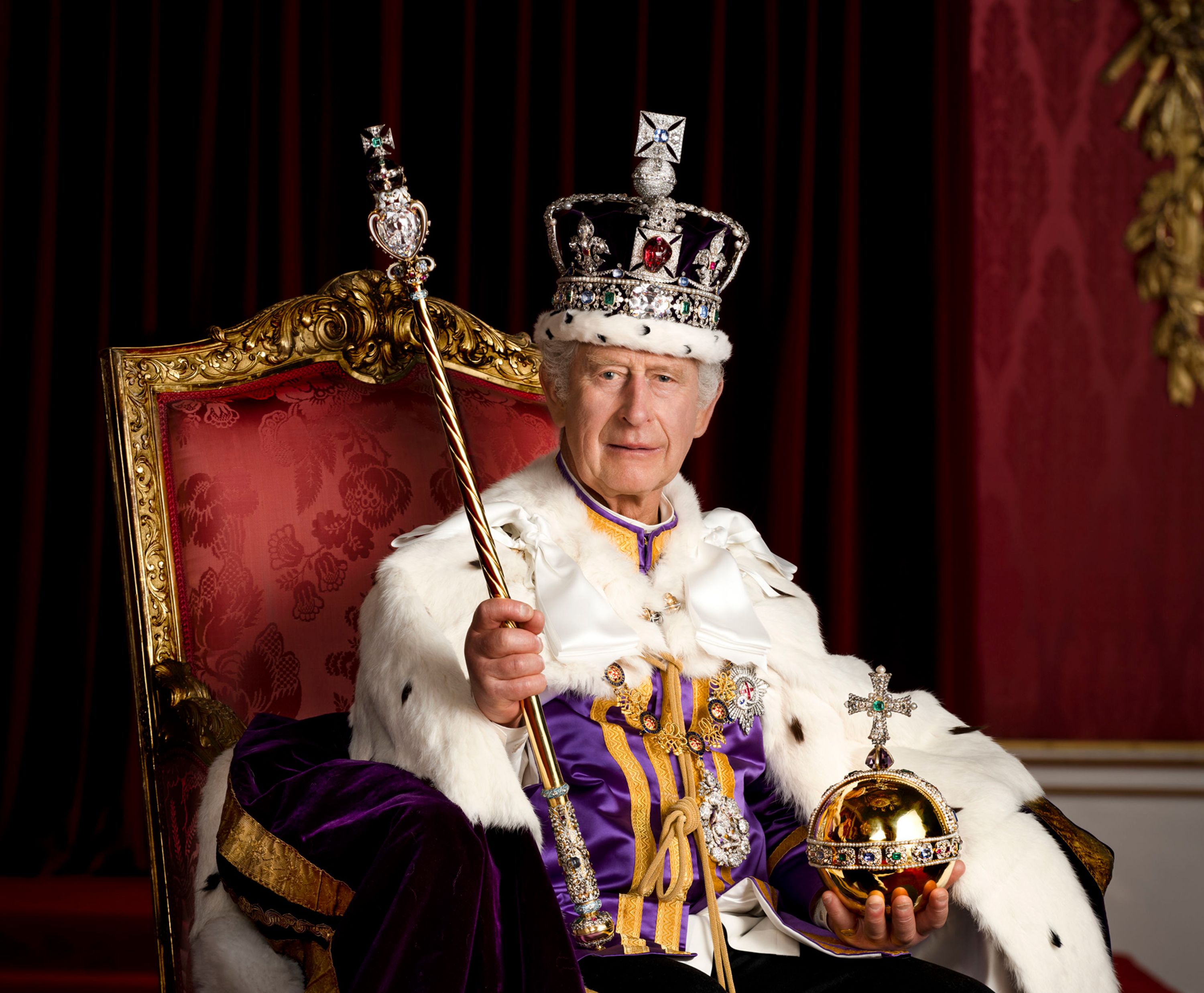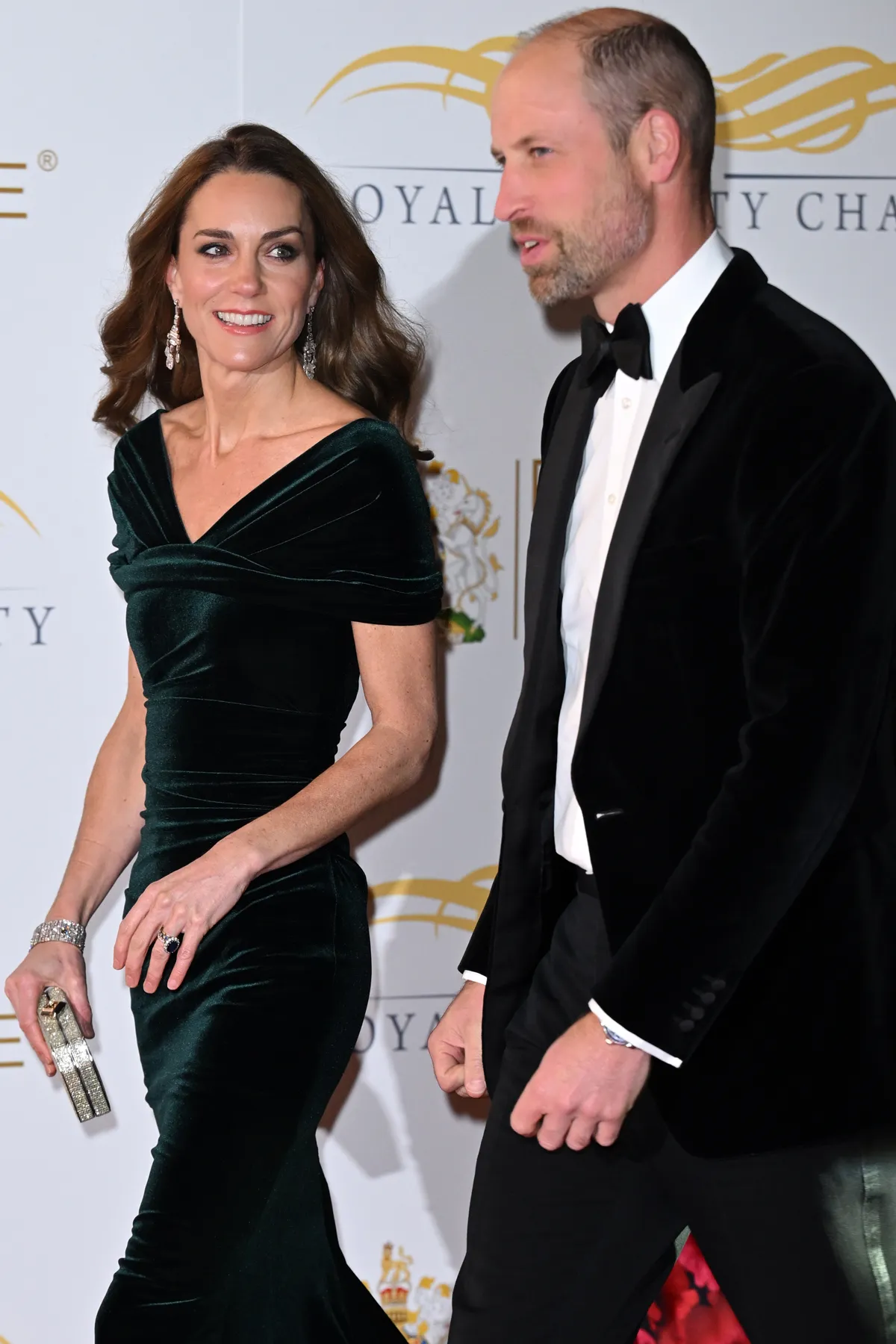In a shock revelation that has rippled through Buckingham Palace, sources close to the royal family indicate that King Charles
III’s health crisis is graver than previously acknowledged, igniting calls for his immediate abdication.
The monarch, recently spotted looking visibly frail during a public outing, is now facing intensifying scrutiny over how his ailing health is impacting not just the royal family
but the nation at large. Observers have expressed outrage that he is permitted to carry on, stating that it is both inhumane and detrimental to his well-being.

Newly surfaced images show King Charles at Fortnum & Mason, a peculiar setting for a sovereign whose health is purportedly in decline. The distressing appearance has led several experts, including Tom Sykes of the Daily Beast, to voice their concern over the King’s rapidly deteriorating condition. “Anyone who can see the evidence before their eyes knows that Charles is losing weight and looks weak,” Sykes stated emphatically, drawing attention to the monarch’s alarming symptoms. Experts warn that the Palace’s attempts to downplay Charles’s struggles amount to a “titanic gaslighting exercise,” with many speculating that the royal household is actively working to control the narrative surrounding the King’s health.
Concerns have surged that the British media, bound by their affiliation to the royal family, are failing to report on the apparent crisis. Sykes, citing his own exclusion from the Royal Roster for his willingness to speak the truth, insists that the Kingdom deserves transparency on matters regarding the King. “What we see here is a classic Shakespearean dilemma,” he remarked, echoing centuries of historical precedent regarding the health of a monarch and its impact on governance. Critics argue that Charles’s continuation in his role, despite his poor health, is a disservice to the country.

With the monarchy facing an unprecedented transition, a pivotal shift in power is reportedly underway, favoring Prince William and Catherine, the Princess of Wales. Their growing involvement in royal duties raises questions about the immediate direction of the monarchy and whether Charles is prepared to pass the mantle on. Some believe this transition is not only desirable but necessary for the monarchy’s survival. “I honestly think he needs to take time for his health,” Sykes affirmed in a recent interview, boldly suggesting that the King should step away entirely to recuperate. “It’s inhuman how he is being allowed to carry on.”
Compounding the turbulence is the simmering feud within the royal ranks, particularly between King Charles and Prince William. Reports indicate that the relationship remains strained, bolstered by a history of communication breakdowns that complicate decision-making within the Palace. Critics of Charles assert that he would benefit from delegating authority and allowing William to operate more officially as a regent. “It’s evident that William has a keen sense of the royal responsibilities that are increasingly falling on him,” Sykes explained.

As this historical moment unfolds, the ramifications are far-reaching—not just for the royal family but for the fabric of the United Kingdom itself. The monarchy grapples with its future at a time when younger generations are increasingly questioning its relevance. Meanwhile, the controversy surrounding Prince Andrew and the estrangement from Prince Harry and Meghan Markle add layers of complexity to an already precarious monarchy.

Compelling voices within the media are questioning the status quo, closing in on what some describe as the “age of abdication.” With royal experts like Sykes breaking away from traditional reporting constraints, citizens are gaining access to insights that are often suppressed. “The power dynamics in the Palace are certainly shifting,” Sykes offered, reflecting on the implications for the royal lineage and the urgent discussions surrounding the future leadership of a historically entrenched institution.
Meanwhile, Catherine has been observed taking on a prominent role, embodying the soft strength of the monarchy during this tumultuous time. In critical speeches addressing societal priorities—highlighting the need for love, family, and time—she emerges as a potential unifying figure within the royal family. Her recent public engagement reiterated her status not just as a stylish figurehead but as a serious contender for wider royal responsibilities. “Catherine’s voice is resonating in a way that suggests she understands the gravity of what awaits her,” critics note, hinting at her potential path toward the throne.
.png)
As urgency permeates through royal corridors and the public sphere alike, the narrative surrounding King Charles and his health crisis is evolving. The age of Charles is fraught with challenges, and the outcome rests precariously on decisions made in the coming days and weeks. If the King does not take respite, the pressing issues surrounding royal governance could become an overwhelming crisis, not just for the monarchy but for the British populace.
The next steps for King Charles remain unclear, but what is crystal is the urgent calls from various factions within the country for him to either recuperate or pass on his responsibilities to ensure the monarchy’s survival. As the Palace scrambles to manage the fallout, one thing is certain—the eyes of the world are watching, amplifying the cries for transparency, empathy, and decisive action. The question hangs heavy in the air: Will King Charles heed the warnings about his deteriorating health, or will he continue to carry the burden of the crown in an increasingly bleak and tumultuous landscape? The clock is ticking, and every second counts in this unfolding drama of royal proportions.